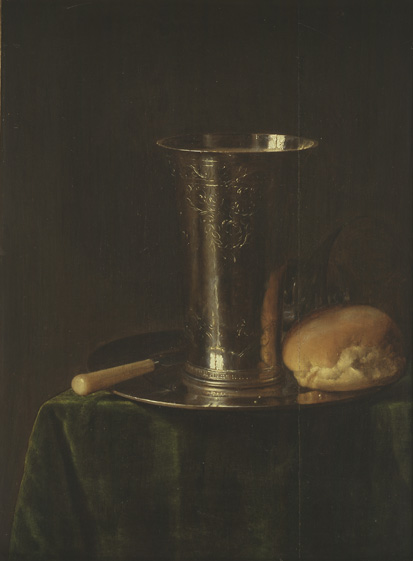
As in other Catholic countries, the Poles were obligated to observe quarterly fasts, i.e. so-called dry days, weekly fasts on Fridays, Wednesdays and Saturdays, and on the eve of greater holidays, in order to prepare oneself by vigil and prayer for their worthy celebration. Originally, these practices took place during a night-time Mass, and with time were transferred to the day preceding the given ceremony.
Many fasts were predominantly voluntary and not imposed by the Church. Jędrzej Kitowicz listed the novena, the septena and the quindena (a novena signified fasting for nine Tuesdays in a row, a septena - for seven Wednesdays and a quindena – for five Fridays), i.e. private fasts addressed to a patron saint. There existed also other periods imposing an abstention from eating, treated as testimony of penance prior to Holy Communion and usually linked with totally refraining from eating and drinking during a preceding period. In a certain sense, this was tantamount to the adoration of the Eucharist and thus hence the name: the Eucharistic fast. Let us also add that certain Church regulations advised to maintain a fast several hours after receiving the Eucharist. This fast functioned already in the period before St. Augustine, who was well aware of its importance.
The duration of fasting in the Catholic Church was gradually reduced. Thomas of Aquinas established a fast from midnight for those who wished to take Holy Communion in the morning. This regulation remained unchanged until 1957, when Pope Pius XI limited it to three hours before the reception of Holy Communion. Finally, in 1946, it was shortened by Pope Paul VI to one hour, a rule binding up to this day. Naturally, reasons for penance varied and fasting was connected not only with Holy Communion, as testified by numerous mentions in the Testament which lists the death of close friends and family, making grave life decisions, the wish to avoid lack of attention during long prayers or an anticipated christening.
As a rule, fasts were observed very strictly, although magnate courts treated Church impositions lightly. Polish society as a whole, rigorously conformed to fasts, much more conscientiously than in other Catholic countries. The reason was simple: fasts were predominantly personal and were not imposed by the Church.
We would like to inform that for the purpose of optimisation of content available on our website and its customisation according to your needs, we use information stored by means of cookies on the Users' end devices. You can control cookies by means of your Internet browser settings. Further use of our website without change of the browser settings means that you accept the use of cookies. For more information on cookies used by us and to feel comfortable about this subject, please familiarise yourselves with our Privacy Policy.
✓ I understand